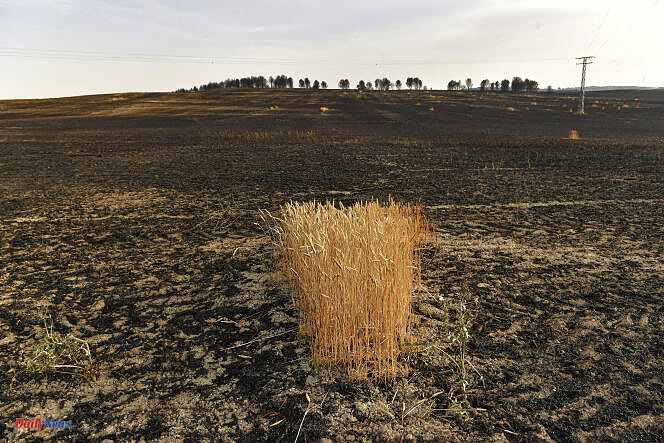“Europe is the fastest warming continent. » The alert is signed by Leena Ylä-Mononen, the director of the European Environment Agency (EEA) who is publishing, on Monday March 11, her first report on the assessment of climate risks on the continent. Europe could thus be faced with “catastrophic” situations if it does not take stock of the climate risks it faces, many of which are already at a critical level, warns the EEA.
“The extreme heat, drought, wildfires and floods we have experienced in recent years in Europe will worsen, including in optimistic scenarios of global warming, and will affect living conditions across the continent.” , writes the agency in a press release. “These events represent the new normal,” insisted Ms. Ylä-Mononen during a press briefing. “They must also be a warning shot,” she says.
The study lists thirty-six major climate risks for Europe. Twenty-one of them require more immediate action and eight require urgent response.
Chief among them are risks linked to ecosystems, mainly marine and coastal. For example, the combined effects of marine heat waves, acidification and oxygen depletion of the seas and other anthropogenic factors (pollution, fishing, etc.) threaten the functioning of marine ecosystems, the report noted. “This may result in substantial loss of biodiversity, including mass mortality events,” it added.
Southern Europe is the most exposed
For the EEA, the priority is for European governments and populations to unanimously recognize the risks and agree to do more, faster. “We need to do more, have stronger policies,” insists Ms Ylä-Mononen. The agency, however, recognized the “considerable progress” made “in understanding climate risks (…) and in preparing for these risks”.
For the EEA, the most exposed areas are southern Europe (fires, water shortage and its effects on agricultural production, impact of heat on outdoor work and health) and coastal regions in low altitude (flooding, erosion, salt water intrusion).
However, northern Europe is not spared, the institution underlined, as evidenced by the recent floods in Germany or the forest fires in Sweden.












